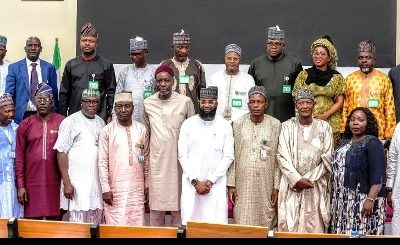Nigerian government IT clearinghouse, the National Information Technology Development Agency (NITDA), has asked ministries, departments, and agencies (MDAs) to comply with the law on use of social media for public institutions.
The agency in an official statement, this week, in Abuja said MDAs are under statutory obligation to comply with the “guidance on the use of social media within the public institutions’ communications environment in order to improve government transparency, participation and interaction with the general public.”
MDAs have 14 days to comply or risk being sanctioned according to the statement signed by the NITDA’s Director General/ CEO, Dr Isa Ali Ibrahim Pantami.
By law, public officials are expected to release social media accounts in their care when they retire from service or when their contractual relationship with the government expires. They are not expected to use personal social media accounts for official engagements.
“All official social media accounts of public officials in their official capacity are the property of government and must be handed over appropriately,” warned the agency.
Since 2015, NITDA has implemented series of policy frameworks and actions to make MDAs more professional and transparent in the use of government’s digital assets.
Read the full statement with the title:
NITDA Calls for Strict Compliance with the Framework and Guidelines for the Use of Social Media Platforms for Public Institutions
The Management of the National Information Technology Development Agency (NITDA) would like to bring to the attention of Federal Public Institutions on the need for strict compliance with the Framework and Guidelines for the use of Social Media Platforms for Public Institutions, signed into law on 25th January, 2019. The Framework and Guidelines was issued with the aim of providing guidance on the use of Social Media within the Public Institutions’ communications environment in order to improve government transparency, participation and interaction with the general public.
Official Social Media accounts are property of Government
This has become necessary as the Agency’s compliance monitoring activity revealed that some Public Officials use personal accounts for official communication. We further note that where official accounts are used, some Public Officials, upon expiration of their tenure or retirement, fail to release such accounts. These actions are in violation of the provisions of the Framework and Guidelines which requires Public Officials not to use personal Social Media accounts for official engagements and also to establish appropriate account handover processes including the need for change of password(s)upon leaving office. It should be noted that all official Social Media accounts of Public Officials in their official capacity are the property of Government and must be handed over appropriately.
Violation of the Regulatory Instruments of NITDA is a criminal offence
The Agency therefore advises Public Officials to take appropriate measures at ensuring that they comply with all the provisions of the Regulation within 14 days of this release to avoid being sanctioned. Public Institutions and the general public are further advised to acquaint themselves with NITDA’s Regulatory Instruments, available on the Agency’s website – www.nitda.gov.ng. It should be noted that violation of the Regulatory Instruments of NITDA is a criminal offence, which is punishable with a fine, imprisonment or both.
The National Information Technology Development Agency (NITDA), is a Federal Government Agency established in April 2001 to implement the Nigerian Information Technology Policy as well as coordinate general IT development and regulation in the country. Specifically, Section 6(a, b & m) of the Act mandates NITDA to create a framework for the planning, research, development, standardization, application, coordination, monitoring, evaluation and regulation of Information Technology practices, activities and systems in Nigeria; provide guidelines to facilitate the establishment and maintenance of appropriate infrastructure for information technology and systems application and development in Nigeria for public and private sectors, urban-rural development, the economy and the government; and accelerate internet and intranet penetration in Nigeria and promote sound internet Governance by giving effect to the Second Schedule of the Act.






























